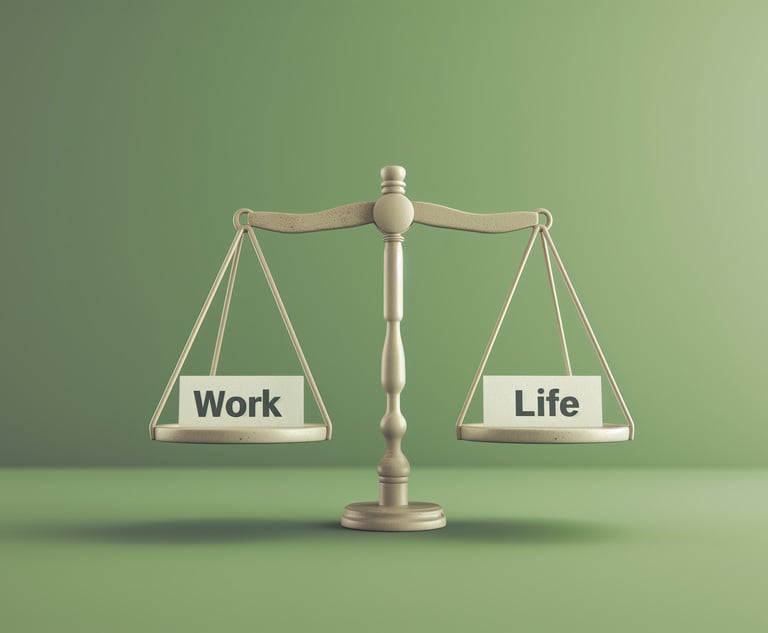How Africa's Judiciaries Are Overcoming Their Colonial Pasts and Modernizing
The odds are stacked against the independence of judiciaries in Africa, not helped by its colonial legacy. But positive signs are emerging.
July 20, 2020 at 07:12 AM
5 minute read
Judicial independence in Africa, while still flawed, has increased over the past few years, and some countries are progressing better than others in this direction.
Only two countries in Africa, namely Botswana, and South Africa, were given a score of 100 in Global Integrity Africa's 2020 indicators, with Namibia and Tunisia close behind with scores of 75.
A score of 100 "means that judges in these countries have guaranteed autonomy and operate without fear or favour," said Darryl Bernstein, partner and head of dispute resolution at Baker McKenzie Johannesburg.
Fifteen countries were given a score of 50 in the index, which means judicial independence is sometimes restricted, and the judiciary is sometimes subject to incentivised decision making.
"Nine countries scored zero, which means judges rarely have autonomy and are often exposed to positive and negative incentives when making decisions," said Bernstein.
However, many courts in Africa now have the power of constitutional review.
Bernstein said the power of judges and courts to make impartial decisions is essential to enabling Africa to take its place on the global stage.
"In many countries the judiciary is controlled by the executive branch, who appoint judges, magistrates and prosecutors because of political loyalty and not merit."
Legal certainty
Strengthening the rule of law is an imperative in Africa because foreign investors will only ramp up their investments if they are confident no government can simply take away their assets on a whim, he said.
"Potential investors are not looking for guaranteed profits, but legal certainty simply allows them to assess opportunities and risks on a commercial basis," said Bernstein.
East Africa and Southern Africa have some strong justice systems, and investors often use this as a yardstick when doing business on the continent, said George van Niekerk, director for dispute resolution at ENSafrica.
"However, the fact that investors embed arbitration clauses in their contracts reflects a lack of trust in the judiciary, although sometimes unfairly so."
Africa needs precise, modern, reliable laws that are relevant to local requirements and their environment, which is not always the case, sometimes due to its colonial past.
"Mozambique, for example, still has Portuguese laws," says van Niekerk.
By 1900 much of Africa had been colonized by European countries, exceptions being Ethiopia and Liberia.
Colonial-era legal systems were designed to control the population and extract wealth from the colony back to the colonizing power.
The courts must insist, wherever possible, on a rigid adherence to the constitution of the land"
Laws in a number of African Commonwealth nations still mirror older British laws, and the judges continue to wear the horsehair wigs and robes of their British predecessors.
Rwanda, which was colonised by both Germany and Belgium at different times scrapped over 1,000 pieces of colonial era legislation in 2019
According to van Niekerk, South Africa has a strongly independent judiciary, largely due to its vibrant constitution.
There is also a separation of powers between parliament, the government and the judiciary and each must stick to its own sphere.
However, the judiciary is quite prepared to rule against the government executive and legislature if their conduct does not pass muster.
"For example, last month the constitutional court ruled that elements of the electoral act were unconstitutional," said van Niekerk.
"Also Pretoria high court Judge Norman Davis recently ruled that some of the government's lockdown regulations were unconstitutional."
A major step forward for the South African judiciary was the establishment of the Office of the Chief Justice in 2010, with its own substantial budget.
Since then, the selection, tenure, payment, disciplining and promotion of judges is independently managed by the Judicial Service Commission.
"Prior to that the judiciary had no say in managing its own staff," said van Niekerk.
Encouraging signs
Signs of progress with judicial independence are also evident in other parts of Africa, albeit at a slow pace.
For instance, in Malawi in February, the constitutional court annulled the controversial May 2019 election, and a new ballot was held on 23 June that shifted power away from the incumbent president.
This was despite the latter's attempts to delay the election, including trying to send the senior judges on leave, which failed.
The incumbent also tried to use the COVID-19 crisis as an excuse to stop the election going ahead and declare a state of disaster, according to Shabir Latif, managing partner at Sacranie Gow and Company, Blantyre, Malawi.
"But the human rights organisations took the government to court,"
In another recent matter, in Zimbabwe in May a high court overturned an exchange control directive that had unilaterally ordered the conversion of U.S. dollar bank account balances into Zimbabwe dollars at a fraction of their original value.
"When it happened in 2018, the directive wiped out billions of dollars of Zimbabwians' savings overnight," said Rudo Magundani, partner at Scanlen and Holderness, in the capital, Harare.
A paper once presented at an African Union judges symposium quoted a Nigerian judge as saying "the courts must insist, wherever possible, on a rigid adherence to the constitution of the land and curb the tendency of those who would like to establish what virtually are Kangaroo courts, under different guises and smoke-screens of judicial regularity…"
Read More
Racial Inequality Still Rife Within South Africa's Judiciary, Lawyers Say
Destination Africa: The Rise of Arbitration Across The Continent
This content has been archived. It is available through our partners, LexisNexis® and Bloomberg Law.
To view this content, please continue to their sites.
Not a Lexis Subscriber?
Subscribe Now
Not a Bloomberg Law Subscriber?
Subscribe Now
NOT FOR REPRINT
© 2025 ALM Global, LLC, All Rights Reserved. Request academic re-use from www.copyright.com. All other uses, submit a request to [email protected]. For more information visit Asset & Logo Licensing.
You Might Like
View All
‘Raises More Questions Than Answers’: Partners Puzzled by Leadership Change at UK Competition Regulator


Long Hours, Lack Of Boundaries: Associates In India Are Leaving Their Firms
Trending Stories
- 1New York-Based Skadden Team Joins White & Case Group in Mexico City for Citigroup Demerger
- 2No Two Wildfires Alike: Lawyers Take Different Legal Strategies in California
- 3Poop-Themed Dog Toy OK as Parody, but Still Tarnished Jack Daniel’s Brand, Court Says
- 4Meet the New President of NY's Association of Trial Court Jurists
- 5Lawyers' Phones Are Ringing: What Should Employers Do If ICE Raids Their Business?
Who Got The Work
J. Brugh Lower of Gibbons has entered an appearance for industrial equipment supplier Devco Corporation in a pending trademark infringement lawsuit. The suit, accusing the defendant of selling knock-off Graco products, was filed Dec. 18 in New Jersey District Court by Rivkin Radler on behalf of Graco Inc. and Graco Minnesota. The case, assigned to U.S. District Judge Zahid N. Quraishi, is 3:24-cv-11294, Graco Inc. et al v. Devco Corporation.
Who Got The Work
Rebecca Maller-Stein and Kent A. Yalowitz of Arnold & Porter Kaye Scholer have entered their appearances for Hanaco Venture Capital and its executives, Lior Prosor and David Frankel, in a pending securities lawsuit. The action, filed on Dec. 24 in New York Southern District Court by Zell, Aron & Co. on behalf of Goldeneye Advisors, accuses the defendants of negligently and fraudulently managing the plaintiff's $1 million investment. The case, assigned to U.S. District Judge Vernon S. Broderick, is 1:24-cv-09918, Goldeneye Advisors, LLC v. Hanaco Venture Capital, Ltd. et al.
Who Got The Work
Attorneys from A&O Shearman has stepped in as defense counsel for Toronto-Dominion Bank and other defendants in a pending securities class action. The suit, filed Dec. 11 in New York Southern District Court by Bleichmar Fonti & Auld, accuses the defendants of concealing the bank's 'pervasive' deficiencies in regards to its compliance with the Bank Secrecy Act and the quality of its anti-money laundering controls. The case, assigned to U.S. District Judge Arun Subramanian, is 1:24-cv-09445, Gonzalez v. The Toronto-Dominion Bank et al.
Who Got The Work
Crown Castle International, a Pennsylvania company providing shared communications infrastructure, has turned to Luke D. Wolf of Gordon Rees Scully Mansukhani to fend off a pending breach-of-contract lawsuit. The court action, filed Nov. 25 in Michigan Eastern District Court by Hooper Hathaway PC on behalf of The Town Residences LLC, accuses Crown Castle of failing to transfer approximately $30,000 in utility payments from T-Mobile in breach of a roof-top lease and assignment agreement. The case, assigned to U.S. District Judge Susan K. Declercq, is 2:24-cv-13131, The Town Residences LLC v. T-Mobile US, Inc. et al.
Who Got The Work
Wilfred P. Coronato and Daniel M. Schwartz of McCarter & English have stepped in as defense counsel to Electrolux Home Products Inc. in a pending product liability lawsuit. The court action, filed Nov. 26 in New York Eastern District Court by Poulos Lopiccolo PC and Nagel Rice LLP on behalf of David Stern, alleges that the defendant's refrigerators’ drawers and shelving repeatedly break and fall apart within months after purchase. The case, assigned to U.S. District Judge Joan M. Azrack, is 2:24-cv-08204, Stern v. Electrolux Home Products, Inc.
Featured Firms
Law Offices of Gary Martin Hays & Associates, P.C.
(470) 294-1674
Law Offices of Mark E. Salomone
(857) 444-6468
Smith & Hassler
(713) 739-1250










